 1 citations,
November 2013 in “Pediatrics in Review”
1 citations,
November 2013 in “Pediatrics in Review” Effective acne treatment and patient education are crucial to prevent long-term physical and psychological effects.
 1 citations,
December 2010 in “Elsevier eBooks”
1 citations,
December 2010 in “Elsevier eBooks” Cell transplantation faces challenges in genitourinary reconstruction, but alternative tissue sources and microencapsulation show promise.
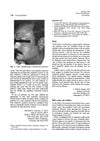 1 citations,
January 1989 in “Journal of The American Academy of Dermatology”
1 citations,
January 1989 in “Journal of The American Academy of Dermatology” The conclusion is that proper communication about the realistic effects of hair loss and skin aging treatments can improve dermatologists' credibility.
 January 2024 in “RSC pharmaceutics”
January 2024 in “RSC pharmaceutics” Removing the outer skin layer increases drug absorption and offers non-invasive treatment options, with some methods allowing for quick skin recovery.
 May 2023 in “Journal of the Dermatology Nurses' Association”
May 2023 in “Journal of the Dermatology Nurses' Association” The DNA convention was a valuable opportunity for learning and networking, especially after COVID-19.
 June 2020 in “Journal of Investigative Dermatology”
June 2020 in “Journal of Investigative Dermatology” Certain bacteria can enhance skin regeneration.
 September 2019 in “The journal of investigative dermatology/Journal of investigative dermatology”
September 2019 in “The journal of investigative dermatology/Journal of investigative dermatology” Not having enough cystatin M/E protein causes less hair growth and dry skin.
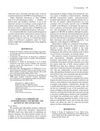 November 2011 in “Pediatric dermatology”
November 2011 in “Pediatric dermatology” Marie-Unna Hereditary Hypotrichosis is a rare genetic condition causing sparse hair growth, requiring specific recognition for proper care.

Type II spiral ganglion neurites avoid high concentrations of laminin and fibronectin.
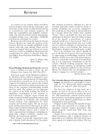 February 2004 in “Plastic and Reconstructive Surgery”
February 2004 in “Plastic and Reconstructive Surgery” The book is a detailed guide on experimental wound healing methods, useful for researchers but not for clinicians.
 August 2003 in “Journal of Investigative Dermatology Symposium Proceedings”
August 2003 in “Journal of Investigative Dermatology Symposium Proceedings” The document did not provide enough information to summarize the causes of hair loss in pre- and postmenopausal women.
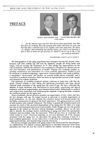 October 1997 in “Dermatologic Clinics”
October 1997 in “Dermatologic Clinics” The aging population's demand for aesthetic medicine is increasing due to longer life expectancy and societal factors.
 July 1976 in “Archives of Dermatology”
July 1976 in “Archives of Dermatology” Some people may naturally have beaded lines on their skin that are more visible with certain treatments, and hair loss similar to post-pregnancy can occur after specific diet and therapy.
26 citations,
March 2006 in “Endocrine, metabolic & immune disorders. Drug targets” This enzyme helps metabolize fatty acids and isoleucine, and could be key in treating neurological diseases and certain cancers.
 24 citations,
January 2020 in “International Journal of Molecular Sciences”
24 citations,
January 2020 in “International Journal of Molecular Sciences” Some plants with flavonoids may help treat hair loss and promote hair growth.
![Influence of FHIT on Benzo[a]pyrene-Induced Tumors and Alopecia in Mice: Chemoprevention by Budesonide and N-Acetylcysteine](/images/research/f8f56777-f891-4879-8c45-c87d6aa82563/small/35499.jpg) 24 citations,
May 2006 in “Proceedings of the National Academy of Sciences of the United States of America”
24 citations,
May 2006 in “Proceedings of the National Academy of Sciences of the United States of America” Budesonide and N-acetylcysteine reduced tumors and alopecia in mice, regardless of FHIT gene status.
 10 citations,
January 2016 in “Planta Medica”
10 citations,
January 2016 in “Planta Medica” Formononetin, found in red clover plants, can promote hair regrowth and reduce hair loss by preventing cell death.
 9 citations,
July 2018 in “European journal of dermatology/EJD. European journal of dermatology”
9 citations,
July 2018 in “European journal of dermatology/EJD. European journal of dermatology” Disrupted sleep patterns can harm skin and hair cell renewal, but melatonin might help.
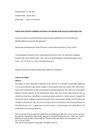 9 citations,
July 2013 in “Experimental Dermatology”
9 citations,
July 2013 in “Experimental Dermatology” Aging reduces the ability of human hair follicle cells to form new cell colonies.
 6 citations,
October 2013 in “Plastic and Reconstructive Surgery – Global Open”
6 citations,
October 2013 in “Plastic and Reconstructive Surgery – Global Open” HSL treatment speeds up hair growth and reduces oxidative stress in hair follicles of ob/ob mice.
 3 citations,
April 2018 in “Holzforschung”
3 citations,
April 2018 in “Holzforschung” Scientists found a new natural compound and other known compounds in Cercidiphyllum japonicum twigs, which might be useful for medicine.
 2 citations,
January 2023 in “Pharmaceuticals”
2 citations,
January 2023 in “Pharmaceuticals” Natural products and phytochemicals may help with hair regrowth, but more research is needed.
 2 citations,
November 2017 in “Biotechnology Letters”
2 citations,
November 2017 in “Biotechnology Letters” Researchers found four natural compounds that can change DHT levels in prostate cancer cells.
 1 citations,
June 2023 in “International journal of basic science in medicine”
1 citations,
June 2023 in “International journal of basic science in medicine” Adiantum capillus-veneris may help with respiratory issues, but more research is needed.
 1 citations,
February 2023 in “Drug Design Development and Therapy”
1 citations,
February 2023 in “Drug Design Development and Therapy” Plant adaptogens may help treat skin diseases and improve skin health, but more research is needed to fully understand how they work.
1 citations,
December 2020 in “Medical lasers” The laser therapy device effectively increased hair growth in people with androgenetic alopecia.
 November 2024 in “Journal of Cosmetic Dermatology”
November 2024 in “Journal of Cosmetic Dermatology” The plant extracts may help treat hair loss by promoting hair growth and reducing DHT levels.
 May 2024 in “Archives of dermatological research”
May 2024 in “Archives of dermatological research” Enz_MoriL from mulberry leaves helps hair growth by affecting specific cell pathways.
 August 2023 in “Vittalle”
August 2023 in “Vittalle” Mais estudos são necessários para garantir a eficácia e qualidade dos tratamentos de alopecia com plantas medicinais.
 April 2023 in “Acta Poloniae Pharmaceutica”
April 2023 in “Acta Poloniae Pharmaceutica” Herbal extract shampoo increased certain minerals in hair and improved hair growth and scalp health.















![Influence of FHIT on Benzo[a]pyrene-Induced Tumors and Alopecia in Mice: Chemoprevention by Budesonide and N-Acetylcysteine](/images/research/f8f56777-f891-4879-8c45-c87d6aa82563/small/35499.jpg)












